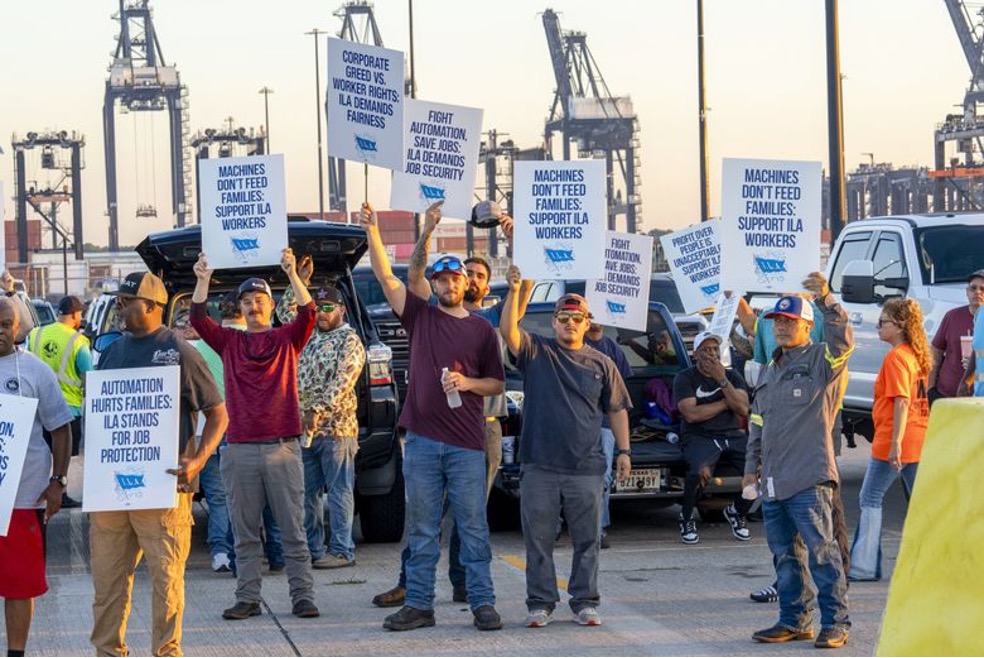The U.S. East and Gulf Coast ports are bracing for a significant disruption as the International Longshoremen’s Association (ILA) prepares to launch a strike on October 1, 2024. This potential work stoppage stems from unresolved labor negotiations between the ILA and the United States Maritime Alliance (USMX). The primary points of dispute revolve around the implementation of automated systems and demands for wage increases and improved benefits. The ILA has voiced strong opposition to port automation, citing concerns over job security and its long-term effects on port workers’ livelihoods.

Causes and Progress of the Dispute
The strike threat emerged after labor talks broke down, with both parties unable to resolve key issues. The ILA is particularly opposed to the introduction of automated gate systems, arguing that these technologies could significantly reduce the number of jobs available to longshoremen. Additionally, the union is advocating for higher wages and improved benefits in light of recent inflationary pressures. Despite ongoing negotiations, no agreement has been reached, making a strike increasingly likely.
Impact on Cross-Border E-Commerce Sellers
A strike at these critical U.S. ports could cause substantial delays and increased costs for businesses, particularly cross-border e-commerce sellers. The East Coast and Gulf ports are vital arteries for international trade, handling a significant share of U.S. imports and exports. Disruptions could lead to widespread congestion, delays in shipping, and a rise in logistics costs, while product shortages could further complicate fulfillment for businesses dependent on these ports. Industries that rely heavily on timely deliveries, such as retail and pharmaceuticals, could face serious challenges in maintaining their supply chains.
COPE’s Solutions to Mitigate the Impact
As a leader in warehousing and logistics services for e-commerce businesses, COPE is uniquely positioned to help its clients navigate the potential challenges posed by the strike. The following solutions are available to help minimize disruption:
1. Strategic Cargo Rerouting: COPE offers alternative routing solutions to bypass affected East Coast ports, utilizing West Coast or Canadian port options to ensure continued movement of goods.
2. Expanded Warehousing Capabilities: With multiple large-scale warehouses, COPE provides flexible storage solutions to buffer any delays caused by port congestion. This allows clients to temporarily store goods while waiting for conditions to improve.
3. Diverse Transport Alternatives: For urgent shipments, COPE can arrange air freight or other alternative transport options, ensuring critical goods reach their destinations on time despite disruptions.
4. Real-Time Updates and Monitoring: COPE continuously tracks the latest developments and offers timely updates on shipping schedules, cost changes, and any potential delays. This allows clients to make informed decisions and adjust their logistics plans as necessary .
COPE remains committed to ensuring its customers’ supply chains continue to operate smoothly, even in the face of these industry-wide challenges. By leveraging its robust logistics network, the company provides e-commerce businesses with the agility and resilience needed to thrive in an uncertain environment.
